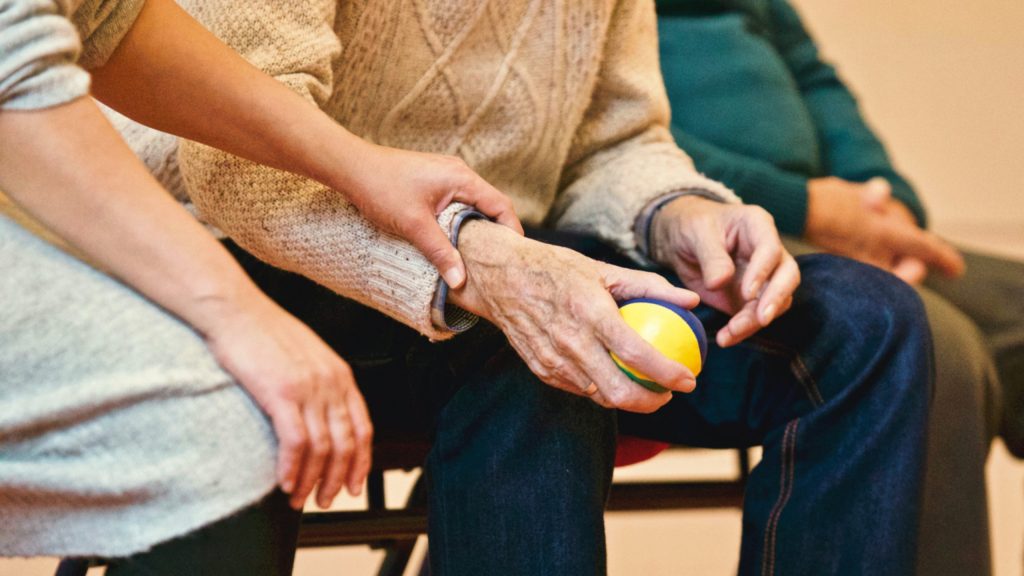Some people like to exercise on their own. However, you might prefer working in a group with a trainer. If so, your doctor may suggest pulmonary rehabilitation (rehab). Pulmonary rehab is a structured program. It takes place in a facility that may look like a gym.
Download What is Pulmonary Rehabilitation and How Can It Help as a PDF.
But, rehab programs have trained staff, including:
- Nurses
- Doctors
- Physical therapists
- Respiratory care practitioners
- Personal trainers
- Coaches
These programs are helpful if you don’t have much experience with exercise. They’re also good if everyday activities make you lose your breath. And, they can help you start, re-start or upgrade your exercise program.
How do I choose a pulmonary rehabilitation program?
Your doctor may work with a program on a regular basis. However, you can also find one by contacting local hospitals.
Call your insurance company to see if they cover pulmonary rehab. Cardiac rehab programs are more common. But, they may not understand how to manage your condition.
What to expect from a pulmonary rehab program
Assessing your general ability is the first step in any rehab program. Next, you’ll get a plan that’s tailored to your goal and abilities. Then it’s up to you to work that treatment plan.
During your assessments, you’ll work with
- Physical therapists
- Occupational therapists
- Exercise specialists
- Recreational therapists
If you need oxygen therapy, or have other health conditions, they can help.
A formal ability assessment looks at:
- Posture and balance
- Joint stability
- Walking patterns
- Muscle strength and endurance
- Functional task tolerance
- Cardiopulmonary exercise tolerance
Your test results help the staff design your exercise program.
The cardiopulmonary endurance (cardio) assessment includes:
- Stationary bike or treadmill test
- 6-minute walk test
- 12-minute walk test
During your test, they’ll measure:
- Your heart rate & blood pressure
- How breathless you feel
- How hard you feel like you’re working
- Your blood oxygen level
Functional assessment (Functional Independence Measure Scoring)
During this test, they assess how much help you need to do the following:
- Dressing
- Bathing
- Meal prep
- Eating
- Social activities
- Household tasks like laundry and cleaning
- Work tasks
Other tools assess how well you do work-related tasks. These include lifting, standing, and kneeling.
What are the benefits of pulmonary rehab?
These programs offer benefits you may not get if you exercise alone. Firstly, the staff monitors your form and offers feedback and guidance. Secondly, they care about your goals. So, they can design a program to help you achieve them. And finally, you’ll be with other people who care about their fitness. That can be very motivating.
For more in-depth information on this topic, please visit the Big Fat Reference Guide (BFRG). If you are enrolled in AlphaNet’s Subscriber Portal, you can access the BFRG here.
Download What is Pulmonary Rehabilitation and How Can It Help as a PDF.

